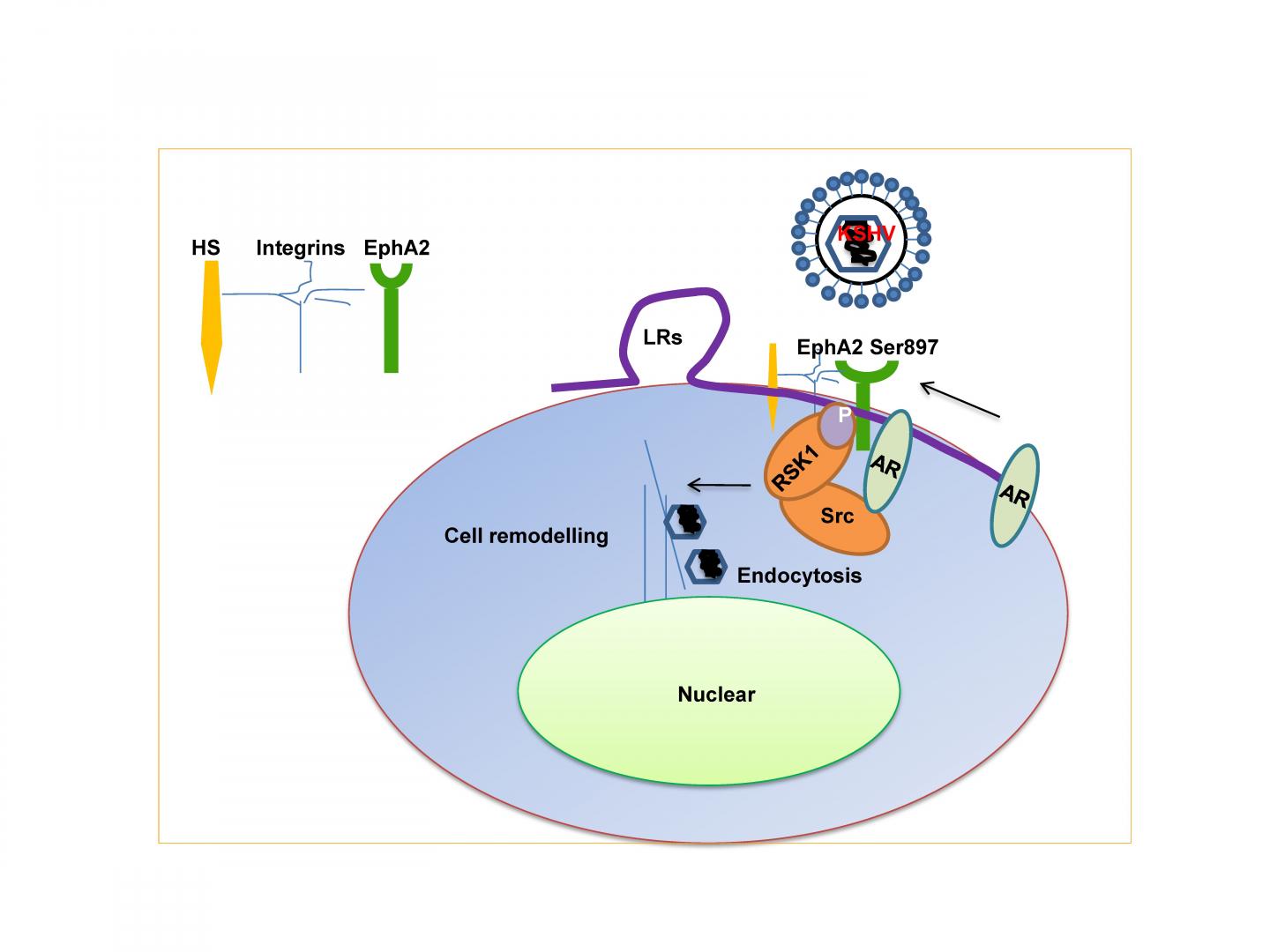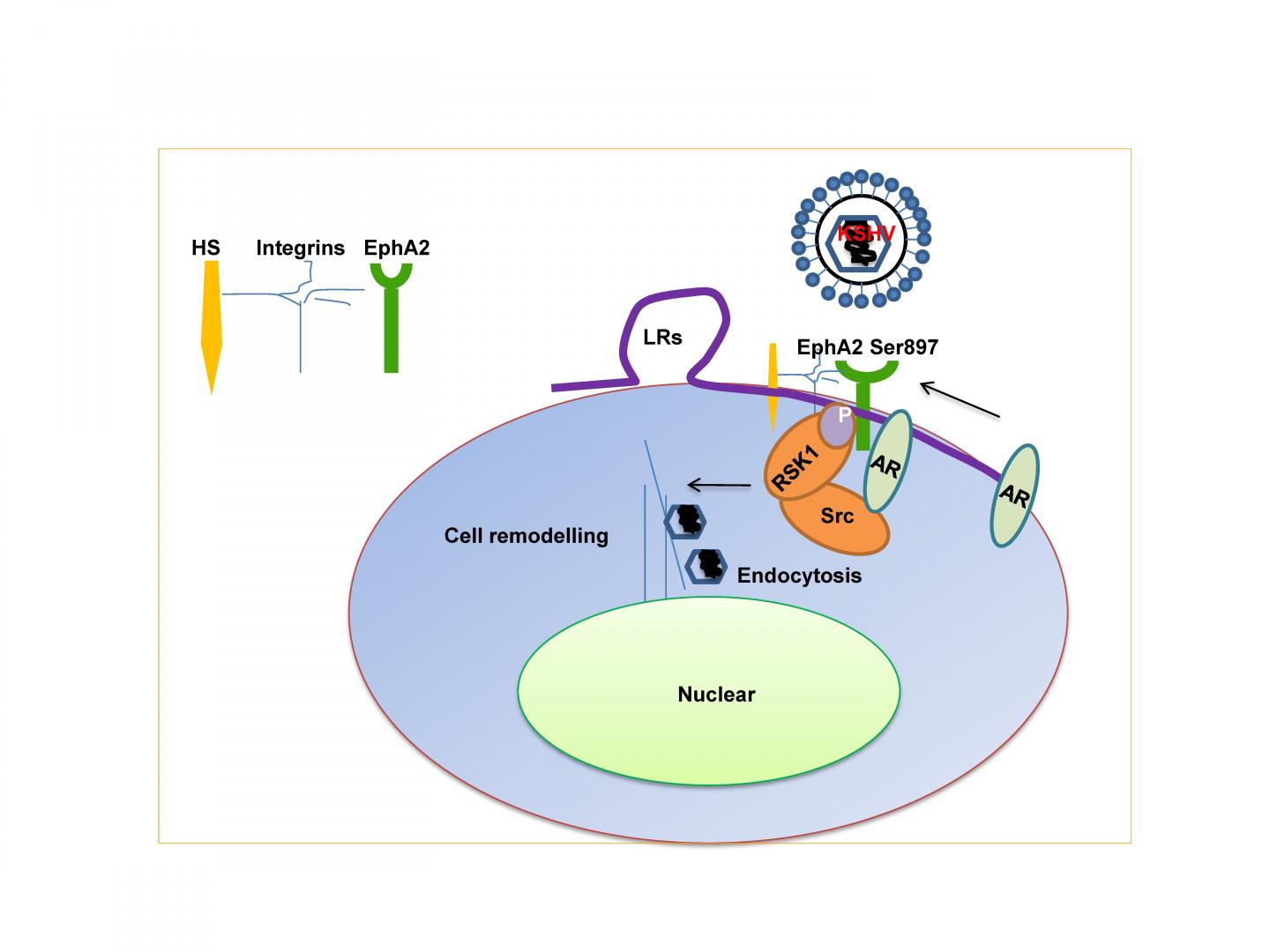
Credit: Wang X, et al. (2017)
Male hormones may facilitate infection with a virus that can cause a type of cancer known as Kaposi's sarcoma. This finding, published in PLOS Pathogens by Ke Lan's group of the State Key Laboratory of Virology, Wuhan University, China, could help explain why men have an increased risk of developing Kaposi's sarcoma.
Earlier studies have suggested that men are more vulnerable to infection with Kaposi's sarcoma-associated herpesvirus (KSHV), and more DNA from this virus is detected in infected men than in infected women. This suggests that male hormones may influence KSHV infection, but their precise role has remained mysterious.
To investigate how male hormones might influence KSHV infection, the authors of the new study performed a variety of experiments with human cell cultures. These experiments focused on the androgen receptor, a protein found in the outer membrane of some cells. Both men and women have androgen receptors, but they are activated by hormones (such as testosterone) that are produced at much higher levels in men.
The researchers used a technique known as RNA interference to inhibit androgen receptor activity in the cultured cells and then exposed the cells to KSHV. They found that AR inhibition led to much lower levels of KSHV genetic material detected in the cells than in control cells. Cells treated with 5α-dihydrotestosterone (DHT), a hormone that activates the androgen receptor, had increased levels of KSHV. This suggests that both the androgen receptor and DHT promote KSHV infection.
Further experiments revealed the molecular details of this effect. The researchers found that the androgen receptor triggers a molecular signaling pathway that primes another receptor known as ephrin receptor A2 to permit KSHV to enter the cell–the first step of infection.
With further research, these findings could help guide efforts to develop drugs that could prevent KSHV infection and reduce the risk of Kaposi's sarcoma. Since ephrin receptor A2 is also involved in other viral infections, such as hepatitis C, the findings could be relevant to other diseases as well.
"Male hormones," the authors further explain, "facilitate Kaposi's sarcoma-associated herpesvirus infection through activation of viral receptor EphA2."
###
In your coverage please use this URL to provide access to the freely available article in PLOS Pathogens: http://journals.plos.org/plospathogens/article?id=10.1371/journal. ppat.1006580
Citation: Wang X, Zou Z, Deng Z, Liang D, Zhou X, Sun R, et al. (2017) Male hormones activate EphA2 to facilitate Kaposi's sarcoma-associated herpesvirus infection: Implications for gender disparity in Kaposi's sarcoma. PLoS Pathog 13(9): e1006580. https://doi.org/10.1371/journal.ppat.1006580
Funding: This work was supported by grants from the Natural Science Foundation for Distinguished Young Scholars (81425017), the Ministry of Science and Technology of China (2016YFA0502100), the Key Project of the Natural Science Foundation of China (81230037), and the National Institutes of Health (1R01AI116442) to KL. The funders had no role in study design, data collection and analysis, decision to publish, or preparation of the manuscript.
Competing Interests: The authors have declared that no competing interests exist.
Media Contact
PLOS Pathogens
[email protected]
Related Journal Article
http://dx.doi.org/10.1371/journal.ppat.1006580





